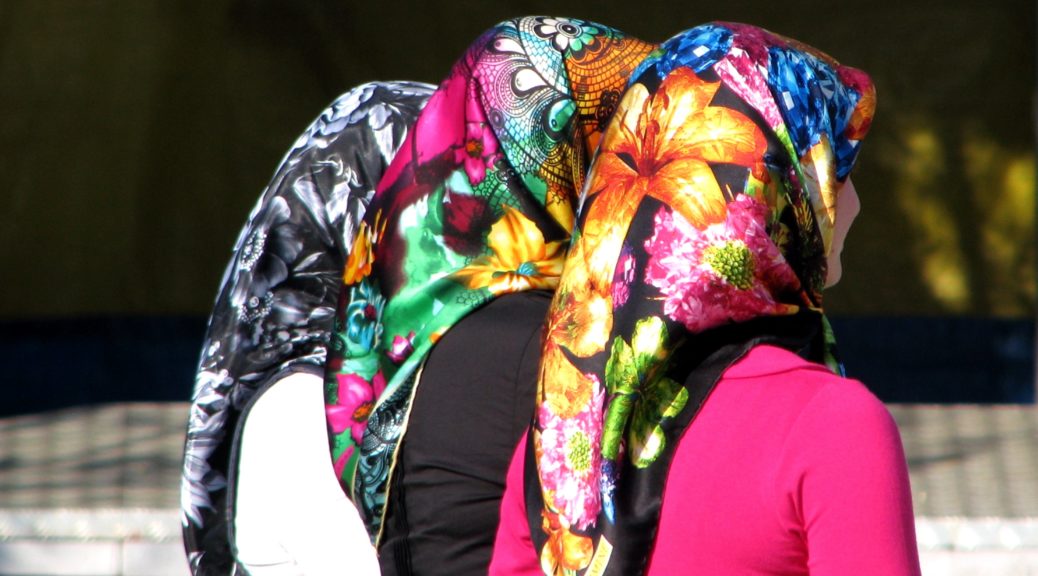By Meghna Sathiapalan
Growing up in Saudi Arabia, an experience of immeasurable impact, has decidedly influenced the person I am today. Having lived there for thirteen years, I have faced a lot and grown immune to some truths; particularly, the seemingly harsh customs and the repression women are forced to suffer. During the former part of my childhood, I hadn’t recognized the wrong in it; I studied in an American school, a bubble that the ultra-conservative Islamic influences left untouched. Inside school, I grew up as an average American teenager; I could wear whatever I wanted, express my views freely and never had to worry about any form of subjugation. However, any activity that required me to leave the school grounds and go into public meant donning the mandatory black graduation cloak-like piece of apparel known as the abaya, as well as an optional head-covering. I might add that the Saudi heat is quite intense, and wearing this garment really increases bodily discomfort. Just imagine having every drop of sweat stick awkwardly to your skin.
Soon enough, I grew sick of wearing the abaya, even for short trips to nearby grocery stores. Eventually, I got even more annoyed at how non-Muslim women were also forced to adhere to this custom, even though they didn’t even believe in the tradition. Until about fifteen, I tolerated this, but around 16, that rebellious teenage spirit started to kick in. I started to leave my abaya more open and let my headscarf slip back when I went out in the public world. It earned disapproval, even from my own parents, who just wanted to avoid trouble. But I had had enough. When most women in other parts of the world had the freedom to do as they pleased, why shouldn’t Saudi women have the same? Why do they deserve less? Also, the fact that Saudi women aren’t allowed to drive and hold jobs in the government amplified my anger. It was injustice.
“Women are just as capable as men,” I voiced to one of my conservative Muslim friends, “Why are they seen as inferior? Why do they even bother wearing hijabs (head covers)?” I couldn’t comprehend why this particular friend bothered wearing the hijab either and voiced my disapproval.
“It isn’t always a matter of inferiority, Meghna,” she told me, “A lot of it has to do with culture. Different cultures have different customs. And a lot of Muslim women don’t see it as subjugation; they view it as a dedication to God.” She adjusted her headscarf more tightly and pushed a strand of hair back into it. “We don’t reveal our hair or too much of our body to men because it isn’t necessary. And doesn’t it also require men to judge us on more than just “good looks?” She smiled and added, “And you don’t think it makes me look any less pretty, do you?” I laughed, mostly to hide my confusion and the whirlwind of thoughts that she had provoked.
Reflecting back, she opened my eyes to a new perception, a new way to look at this “subjugation.” And I realized some of my fiery thoughts were a resultant echo of the feminist voices I heard on the news, in school, and around in general. To some extent, I still saw the abaya and hijab as a form of suppression, especially when non-Muslims were required to wear it. But the more I looked around, the more I realized that it wasn’t just naïve women blinded by faith who proudly upheld this tradition; many of my well-educated friends wore it with pride, even to school, as a symbol of their love for their religion. Acknowledging this for the first time, a sense of acceptance lodged itself in my soul and I grew to appreciate their dedication. I realized that cultures other than mine must co-exist peacefully in this world. And while sitting on the flight to Los Angeles, looking down at the sandy barren landscape floating swiftly away, I felt a pang of sadness. I was moving away from home to the United States, a place of opportunity, of freedom, of possibilities to grow as an unhindered woman. Yet I knew I would miss Saudi Arabia intensely and that I would never forget the valuable life lesson it taught me- tolerance.
Featured image by Özgür Mülazımoğlu on Flickr
Megs, or Meghna, moved to the US from Saudi Arabia two years ago and loves USC! She’s a senior studying Business Administration and Economics. In her free time, she writes, goes to movies with her friends, and explores LA because it’s such a vibrant city with so much to do. She’s always been passionate about English, teaching, and meeting new people.

